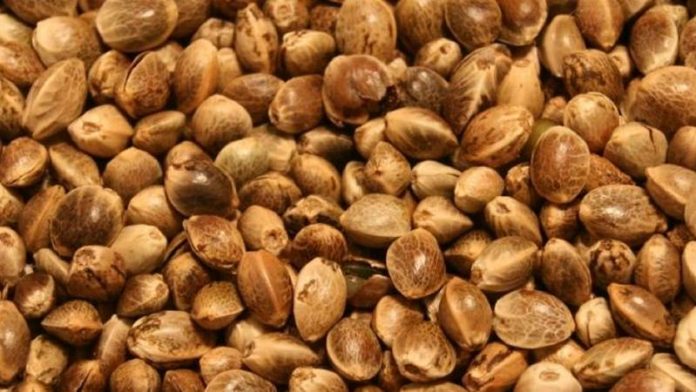The Colorado Department of Agriculture (CDA) has added another half-dozen industrial hemp seed varieties that Colorado Seed Growers Association members can use.
Last year, eight varieties of hemp were trialed across the state in five locations with varying differences in daytime/nighttime temperatures, altitude, length of growing season and types of soil.
From the eight, six have been approved to be used as “CDA Approved Certified Seed.” The new varieties are:
- B 11
- CRS-1
- Henola
- Medicine Mother
- Rajan
- VC Star
These add to the existing varieties:
- Elatta Campana
- Fibranova
- Helena
- Beniko
- Tygra
- Bialobrzeskie
- Elite
More information on the approved varieties can be found here.
In order to be approved for the state, varieties must not only demonstrate their ability to thrive in Colorado conditions, but result in mature plants that test at or below 0.3% tetrahydrocannabinol (THC) concentration on a dry weight basis. Any plant above this threshold is considered to be marijuana in Colorado.
CDA’s regulatory role with the crop is limited to the cultivation of industrial hemp and administration of the certified seed program. It does not exercise any authority over processing, sale or distribution. It is also not a seed supplier, nor does it sell seed. All hemp farmers in the state are subject to routine inspection and sampling to verify that THC levels are at or below the acceptable level.
The state has been going gangbusters on the crop. According to Colorado Public Radio, it led the states in 2017 with 10,000 registered acres. This year, that number tripled to more than 30,000 acres grown by 850 farmers.
With U.S. President Donald Trump recently signing the 2018 Farm Bill, which legalises the crop at a federal level, the future for Colorado’s sector is looking bright as farmers will be able to access crop insurance and bank loans. That’s assuming the banks are interested of course; in some states financial institutions may remain wary of providing loans for industrial hemp related activities for a while.
But, as with other states, in order to stay on the good side of the feds, Colorado will first need to submit a plan to the USDA. Kentucky was first out of the barriers, doing so the same day the 2018 Farm Bill was signed.


